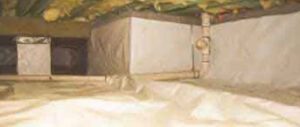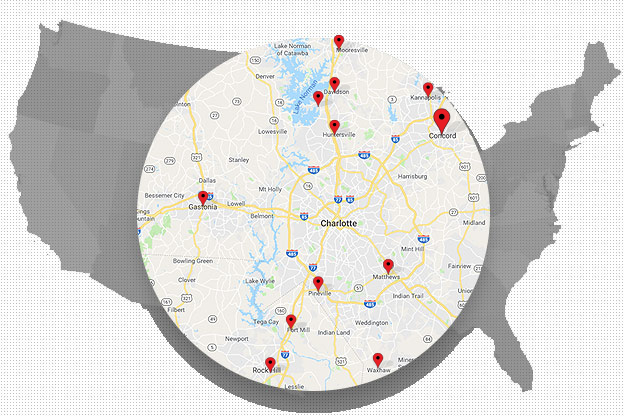Basement Waterproofing ROI: The Value Boost Most Homeowners Must Know About

When homeowners talk about return on investment, they usually mean kitchens, baths, or curb appeal. Yet water where it doesn’t belong will knock down a sale price faster than dated cabinets. Across the US, buyers and inspectors treat a damp basement as a risk signal and they price that risk into their offers. Industry sources consistently note that remedial waterproofing can recoup a meaningful share of its cost at resale, with survey-style estimates often landing near 30% ROI, especially when work is documented and warranted.
Table of Contents
ToggleWhat the market punishes (and rewards)
Visible moisture, staining, or musty odors show up on many “deal-breaker” lists because they hint at underlying issues. Experts flag water and mold as top buyer red flags, which translates to lower offers or longer time on market. Fixing moisture problems by waterproofing contractors in Charlotte NC before listing helps sellers avoid steep concessions.
Waterproofing isn’t just optics, it removes a negotiating wedge. Real estate experts point out that homes with wet basements often sell for less, and sellers without proof of repairs are more likely to face price cuts at inspection. By contrast, completed work can help a seller keep the asking price intact.
Costs you can benchmark
Most homeowners spend around the mid-$5,000s on basement waterproofing, with typical ranges running roughly $2,500 to $8,200 depending on method, extent, and access. Minor fixes may be hundreds; full perimeter systems or exterior membranes can climb into five figures. These national benchmarks provide a realistic cost basis for ROI calculation.
Reading ROI in real life
How does that translate to value? Consider three levers that influence payback:
- Price protection at sale. If evidence of moisture triggers a $7,500 buyer credit or price cut, a $5,000 interior system that removes the objection is already “profitable” in market terms.
- Listings with documented waterproofing and clean inspections generally show better buyer confidence and fewer fall-throughs. Experts recommend addressing water issues before listing to avoid costly renegotiation.
- Longevity and downstream savings. Stopping water early helps prevent mold remediation, foundation repair, and damaged finishes—expenses that can quickly exceed the original waterproofing bill. The Spruce note that proactive systems avert those compounding costs.
Factors that move the needle
- Keep permits, photos, scope of work, and a transferable warranty. Buyers pay more readily for fixes they can trust.
- Scope fit. Match the solution to the problem. French drains and sump systems manage hydrostatic pressure; exterior membranes and grading address exterior intrusion. Over- or under-scoping hurts returns.
- Dry-season work often installs faster and allows better curing. That helps you hit a listing window without rushed decisions.
- Local norms. In regions with frequent storms or high water tables, buyers expect dry basements; the discount for moisture can be steeper, improving the payback on repairs.
Also Read: Record Rain, Rising Water Tables: What the 2025 El Niño Forecast Means for Charlotte Basements
Practical ROI math you can use
Start with your likely cost range (say $3,000–$8,000), then ask your agent two questions:
- What discount are buyers applying to similar homes with moisture issues in your area?
- How does a clean inspection and warranty change days-on-market?
If the expected discount exceeds the midrange system price—or if time-to-contract drops meaningfully—the investment pays off even before you count avoided damage.
Bottom line
Waterproofing won’t turn a basement into a bedroom without proper finishing and egress, yet it does something just as valuable: it protects the asset.
Ready to safeguard value with basement waterproofing in Charlotte NC? Schedule a no-pressure assessment with Sedona Waterproofing Solutions. Get a written scope and straight answers on costs so you can price your home with confidence.
Frequently Asked Questions:
- How does basement waterproofing affect resale value and marketability?
Buyers often discount homes with damp basements because moisture hints at mold, hidden damage, and future costs. Addressing water intrusion before listing reduces inspection-time concessions and helps you protect the asking price. Real-estate experts consistently flag water issues as buyer deal-breakers, which is why documented repairs and a clean inspection restore leverage.
- What paperwork and warranties should I keep to support ROI when I sell?
Maintain a tidy packet with the contractor’s scope of work, paid invoices, permits, photo documentation, and a transferable waterproofing warranty. Sellers who present clear proof of professional repairs face fewer renegotiations, and transferable coverage reassures buyers that protection continues after closing. Ask our contractor and any warranty provider for transfer steps and fees so you can include that in the listing and purchase agreement.
- Should I choose interior or exterior waterproofing?
Interior systems (French drains, sump pumps, vapor barriers) manage water at the slab or wall base and usually install with less disruption. Exterior solutions (membranes, excavation, exterior drains, grading) aim to block water before it enters and may offer broader protection but at higher cost and disturbance. The right choice depends on the water source and site conditions. Get an on-site assessment from us and match the scope to the problem.
- Does homeowners insurance cover waterproofing or water in my basement?
Preventive waterproofing is typically considered maintenance and isn’t covered. Standard homeowners policies usually exclude sump-pump overflow and sewer/drain backup unless you add “water backup” coverage. Review your declarations page and ask your insurer about endorsements for backups or overflow.
- When should I schedule waterproofing, and how do I protect the investment over time?
Booking work in drier weather can simplify excavation and curing. After installation, keep gutters clear, extend downspouts, confirm proper grading, and test the sump pump; a battery backup helps during outages. These basics lower failure risk and help preserve the price protection you gained by waterproofing. If you want more help on this, talk to our experts today.
Recent Posts
- How Does Crawl Space Encapsulation Work? A Homeowner’s Guide to the Process
- The Complete Guide to Basement & Crawl Space Waterproofing in Charlotte, NC
- Crawl Space Encapsulation Checklist: Don’t Sign a Contract Without These 5 Things
- The Stack Effect: Why 50% of the Air You Breathe Comes from Your Crawl Space
- Why Carbon Fiber is the Most Sustainable Choice for Modern Basements in Charlotte NC
Categories
- Basement Mold
- Basement Waterproof Foundation
- Basement Waterproofing
- Crawl Space Dehumidifier
- Crawl Space Encapsulation
- Crawl Space Encapsulation Cost
- Crawl Space Repair
- Crawl Space Waterproofing
- Crawl Space Waterproofing and Encapsulation
- Encapsulation
- Foundation Repair
- Foundation Waterproofing
- French Drains
- Leaky Basement
- Mold Remediation
- Mold Removal
- Radon
- Radon and Moisture
- Slab Jacking
- Sump Pump
- Uncategorized
- Vapor Barrier
- Water Leak
- Waterproofing
- White Mold
Archives
- February 2026
- January 2026
- December 2025
- October 2025
- September 2025
- August 2025
- July 2025
- June 2025
- March 2025
- August 2024
- June 2024
- May 2024
- March 2024
- January 2024
- June 2023
- May 2023
- April 2023
- March 2023
- February 2023
- January 2023
- December 2022
- November 2022
- October 2022
- September 2022
- August 2022
- July 2022
- June 2022
- May 2022
- March 2022
- February 2022
- January 2022
- December 2021
- November 2021
- October 2021
- September 2021
- August 2021
- July 2021
- June 2021
- May 2021
- April 2021
- March 2021
- February 2021
- January 2021
- December 2020
- November 2020
- October 2020
- September 2020
- August 2020
- July 2020
- June 2020
- May 2020
- April 2020
- March 2020
- February 2020
- January 2020
- December 2019
- November 2019
- October 2019
- September 2019
- August 2019
- July 2019
- June 2019
- May 2019

